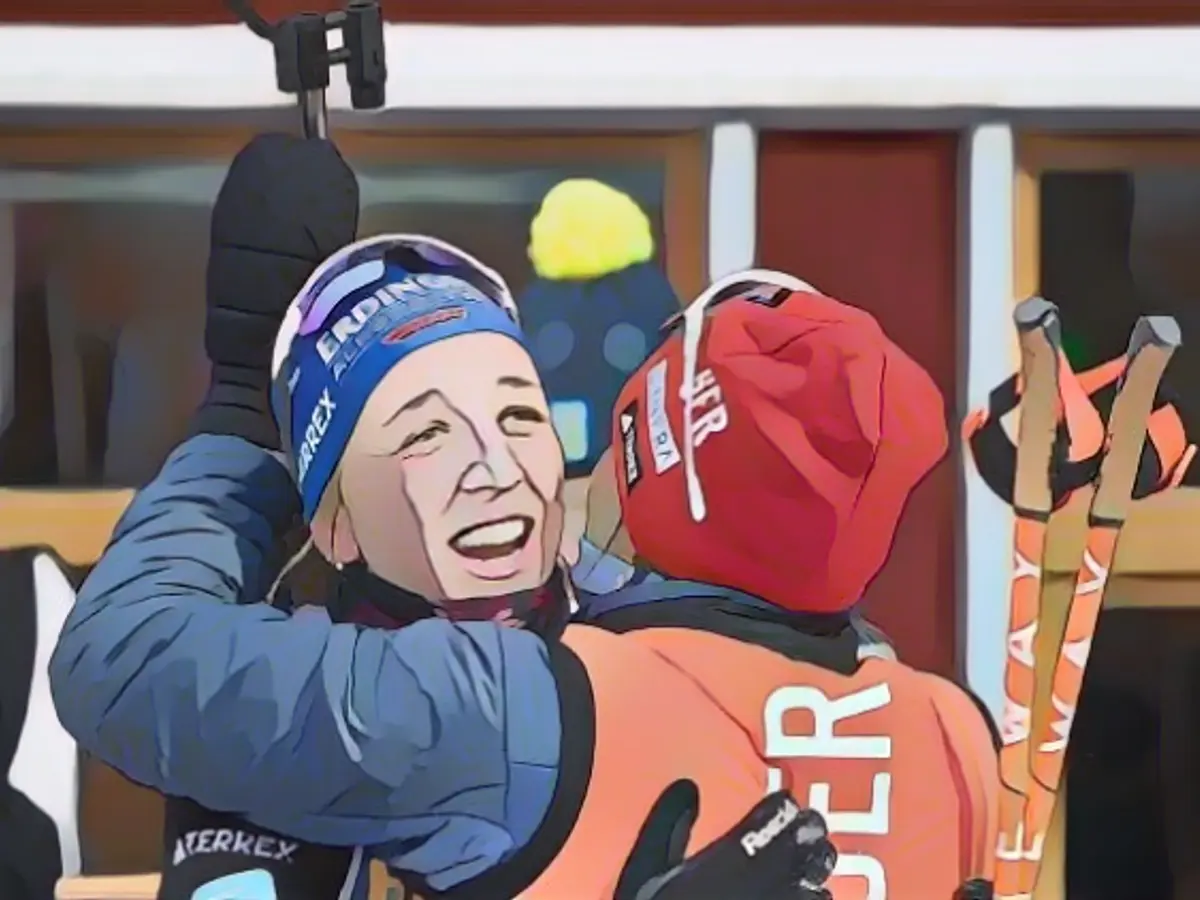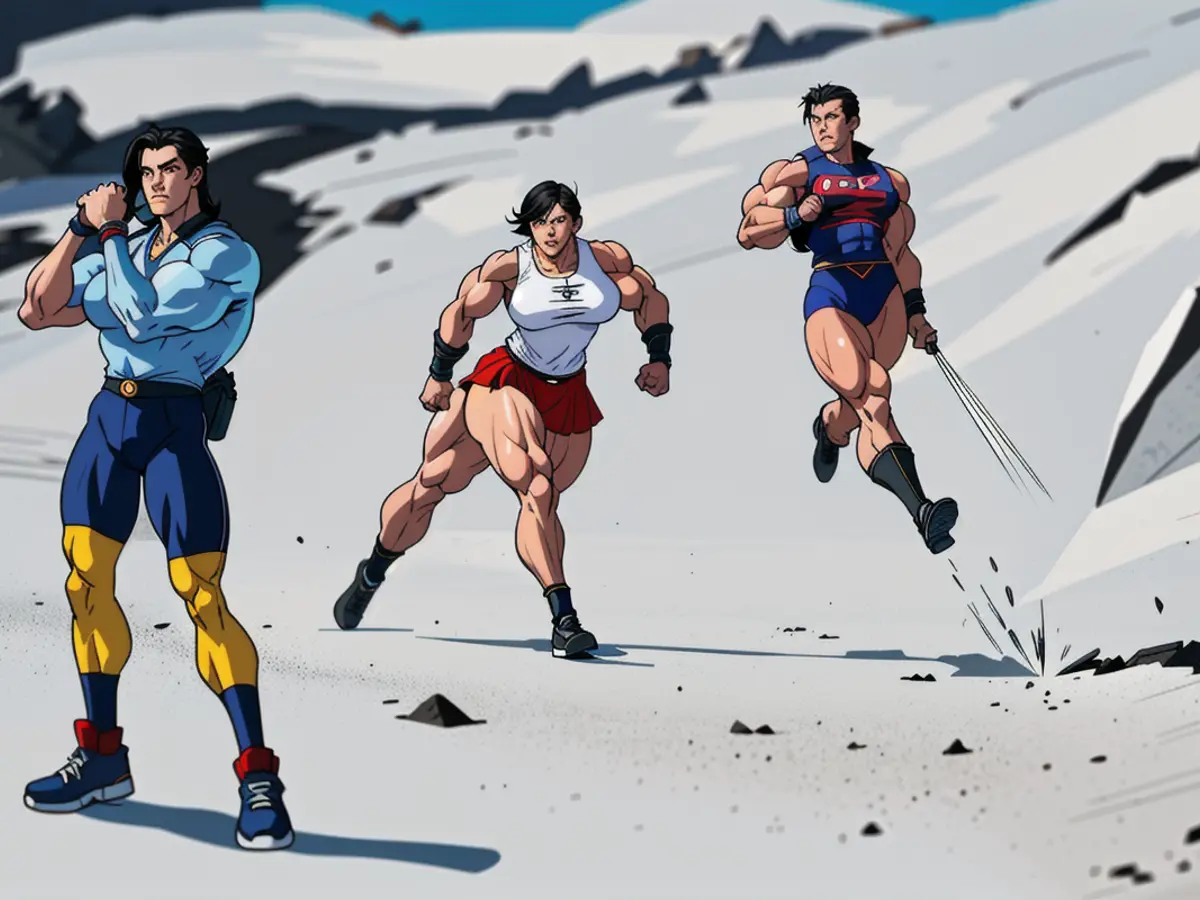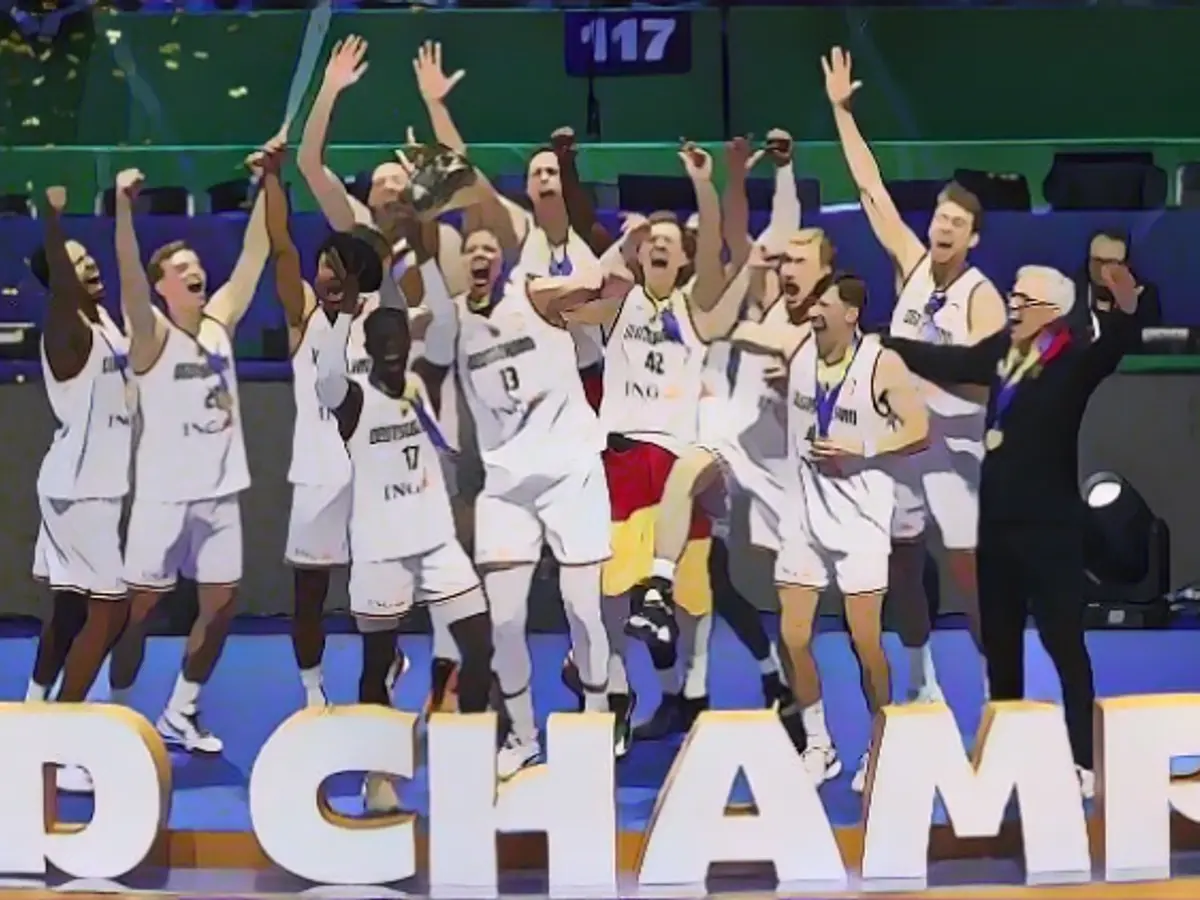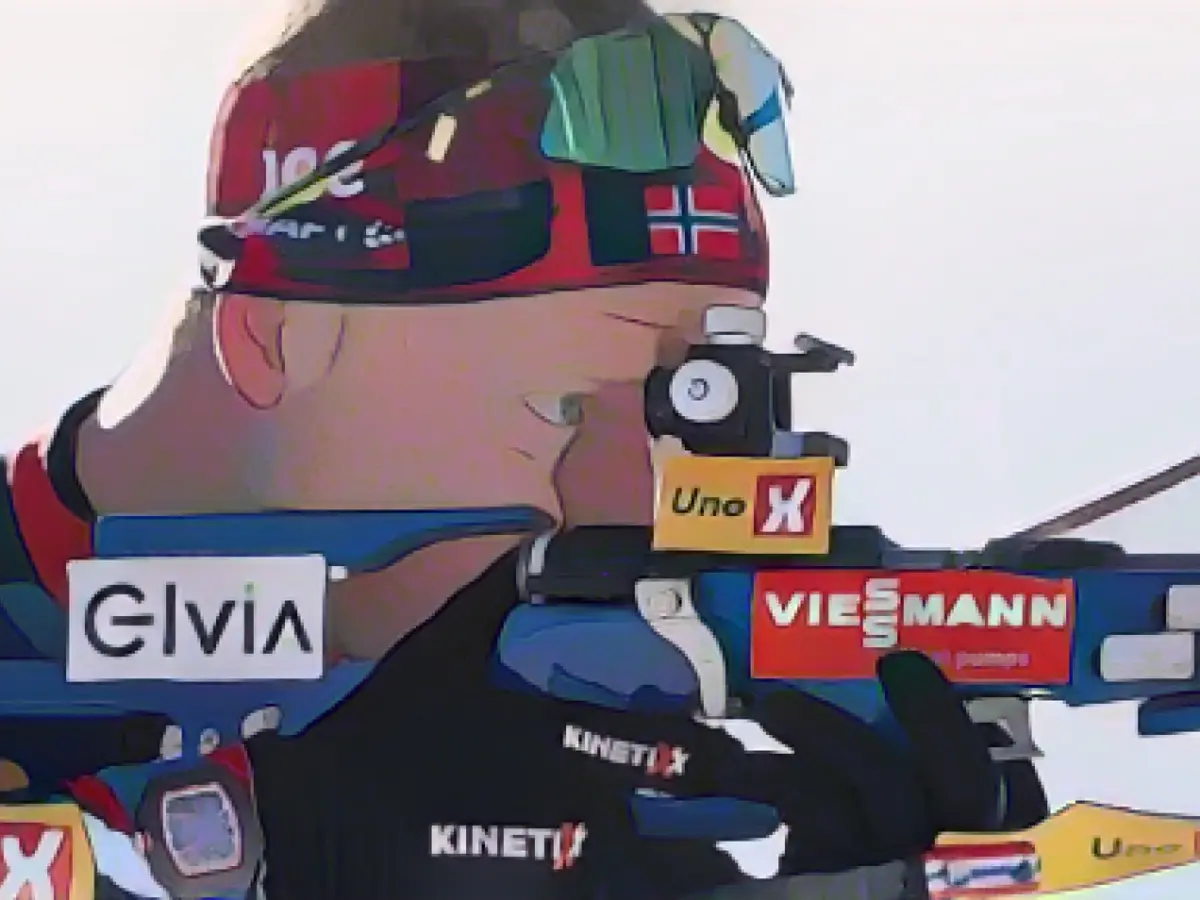Title: Why Germany's Biathletes are Dominating the Winter Sports Scene
Germany's biathletes have been turning heads this winter, led by returnee Franziska Preuß and surprise sensation Philipp Nawrath. Under the guidance of the new national coach, Uros Velepec, some significant changes are afoot. In particular, risk-taking in shooting has become a hallmark of the German team.
The sun was shining bright in Hochfilzen when Uros Velepec, the new national biathlon coach, couldn't help but crack a smile. His athletes were in high spirits, their performance throughout the season unparalleled. The World Cup opener in Hochfilzen was set to continue in the best possible way, with the men's sprint scheduled on Friday at 11:30 a.m. (ARD and Eurosport). And good news for Philipp Nawrath, a German athlete, his hard work had paid off with his first World Cup victory the previous week in Sweden, and taking the yellow jersey of the front runner.
"I've built up the necessary self-confidence with him," Nawrath mentioned during his time in Austria. Nawrath acknowledged that excessive problems in the standing shooting had hindered better results in the past. Yet, something has drastically changed in the German team this summer.
"Just a little fine-tuning needed"
After a 13-year stint, Mark Kirchner from Thuringia announced his retirement in the spring, handing over to Velepec and Jens Filbrich as new head coaches. The shift in training plans and methodology brought renewed energy to the squad around former world champion Benedikt Doll. "Mark left behind a very tidy squad that was simply in a really good starting position," Strelow said. "It just needed some fine-tuning in one place or another. We've already done some things really well."
Velepec is an "open guy, whose communication is excellent," said Strelow, who also had a strong start in fourth place in the overall standings. "His speeches are incredibly motivating - he always has a few psychological tricks up his sleeve," Strelow added. English has been the official language in training since 2022, but Velepec, who hails from Slovenia, is also fluent in German.
"You need courage, you have to dare"
"We have to take more risks, shoot faster, and do everything 100 percent, otherwise, we have no chance," Velepec himself emphasized before his debut season as head coach. Above all, he stressed the importance of risky shooting. Simply go without thinking, get the projectiles out quickly, and rely on experience from thousands of training shots. "You need courage, you have to dare. It's not that easy to start with but most times, the risk is worth it, just avoid overdoing it," said Strelow.
Velepec's change in mentality is necessitated as other nations push the boundaries. Norway, with Johannes Thingnes Bö as their figurehead, is setting the pace in rapid-fire performances. If Germany's team is to stay competitive, they must embrace self-confidence. "That's the only way we can put the others under pressure," said Strelow.
Before the winter, a victory against Bö and Co. was almost unheard of, let alone considering it possible. But the men's squad showed their mettle at the start of the season, with Roman Rees donning the yellow jersey after winning the opening race, and the relay team making it to the podium. Preuß, a German star in the yellow jersey, will also race in the women's sprint on Friday at 14:25. "It's our job to ensure that they can run and shoot well," said Velepec. "It's a long-term project."
Enrichment Insights:
- Franziska Preuß's victory in the women's 10km pursuit at the 2025 IBU Biathlon World Championships in Lenzerheide, Switzerland, was a testament to her sharp shooting. Her training and coaching have been instrumental in honing her skills[2].
- The emerging talent of 20-year-old Selina Grotian signifies a promising future for Germany's biathlon program. The team's strong performance points to an effective coaching and training system in place[5].
- The shift in biathlon training focuses on integrating physical endurance and shooting accuracy to optimize performance. Effective coaching involves promoting these skills within a well-structured framework[3].
- The IBU successfully transitioned governance of Para Snow Sports from the International Paralympic Committee (IPC) in July 2022, and full governance by 2024. This unified approach may benefit Germany's biathlon program by ensuring consistency across different levels of competition[1][4].
Velepec and his coaching team learned to strike a balance between discipline and adventure, guiding the German biathletes to new heights. With a focus on taking calculated risks, shooting faster, and pushing both athletes and coaching methodologies to their limits, a new wave of domination is upon us.







